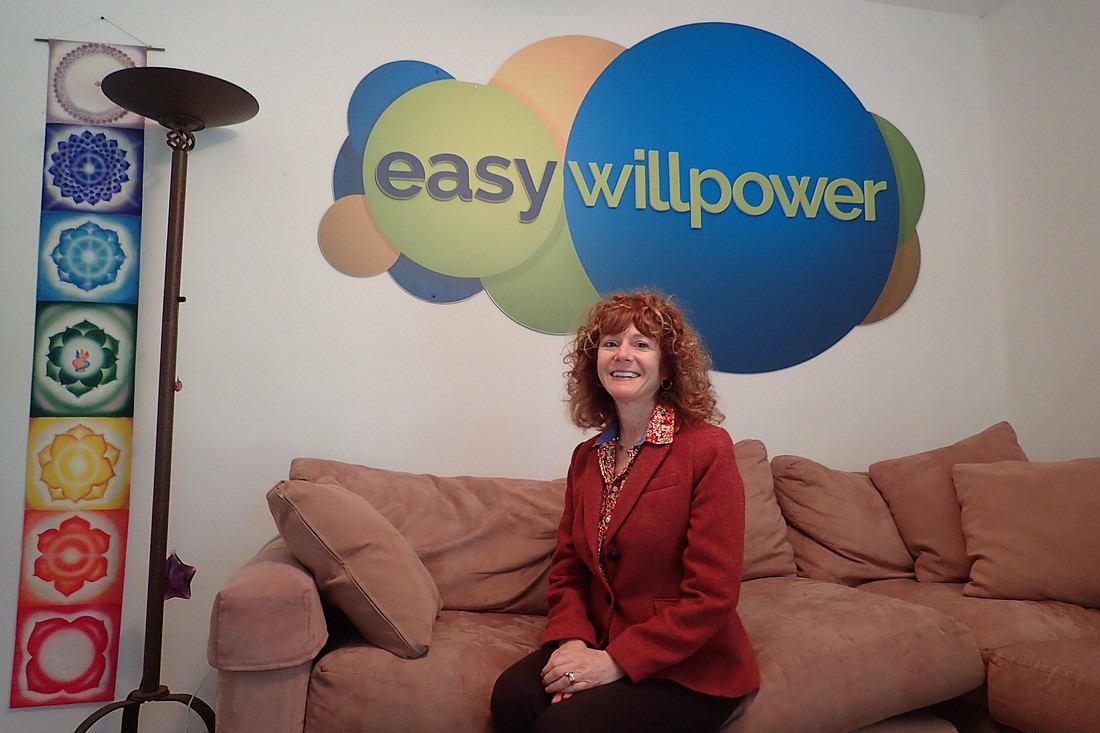- May 7, 2025
-
-
Loading

Loading

Siesta Key resident Rena Greenberg was 26 when an emergency room physician told her she had the heart of an 80-year-old.
She was addicted to sugar and carbs, overweight and had an abnormally low heart rate.
She spent three weeks in a cardiac care unit and had a pacemaker installed before being released.
Back then, doctors discounted the role diet and lifestyle could have played in her illness. On the contrary, she said, the hospital sent a dietician to “talk some sense” into her when she suggested a relationship between them.
Nonetheless, Greenberg decided it was time to adopt healthier habits. First, she had to change her unhealthy relationship with food.
After earning a degree in biopsychology and studying hypnotherapy, Greenberg began working as a biofeedback therapist in New York.
Biofeedback is a method of teaching people to control physical responses to stimuli by showing them those responses, measured by instruments.
“Hypnosis is the same,” she said. “You just drop the instruments.”
When Greenberg came to Florida in 1990, she started knocking on hospital doors, offering wellness programs. Since then, she and her clients have been featured on CNN, Fox, PBS, USA Today and Woman’s World magazine, and she also has a website, EasyWillPower.com.
One central themes of Greenberg’s message is mindfulness, both in the moment and in the future. In many cases, she said, unhealthy choices are made subconsciously, and hypnotic suggestion can retrain the subconsciousness.
She describes a scenario in which someone is preparing for a party where food will be served. Making healthy choices, she said, begins long before the party.
Preparation might require picturing the party, the scene and the food itself. Often, it’s helpful to rehearse the choice beforehand, practicing what to say and how to politely refuse an unhealthy choice.
“Anything important we plan for,” she explained. “Food is an area of your life you really do have to plan for.”
That mental rehearsal is to establish new behaviors, according to Greenberg.
“If you want the behaviors to stick,” she said, “you have to recondition your mind so it becomes the new normal. You have to change your mental movie.”
Greenberg’s specialty, hypnosis, comes into play because mindfulness is more easily established when it’s suggested to the subconscious.
“It starts with consciously having desire to have more awareness,” she said, “but lack of awareness is a habit, and there’s no fine line between subconsciousness and consciousness. What I do is bring the two parts together so there can be more mindfulness and more awareness.”
As the relationship with food changes at the subconscious level, it feels like less of a struggle at the conscious level, combating what, for many, is an emotional attachment to certain foods that may be unhealthy.
After all, according to Greenberg, many people who struggle with bad behaviors already know those behaviors are unhealthy.
To those who balk at hypnosis’ effectiveness, Greenberg said:
“We’re already hypnotized. The food industry, advertising industry, the media. We’re already hypnotized into thinking we need certain foods to be happy or have friends, or to have good life. We’re brainwashed because of images society inflicting on us.”
Her hypnotic suggestion may range from simple to complex; she’s had success with a process during which Greenberg suggests to a patient he or she is having gastric bypass surgery.
“I take them through the whole process,” she said, “describing it as if they’re having the surgery done, having the Lap-Band put in.”
She says people can begin to make changes by themselves, too.
The first thing to do is to notice self-talk, or inner conversations.
“Then ask yourself,” Greenberg said, “‘Does this lead me to the results I want?’”